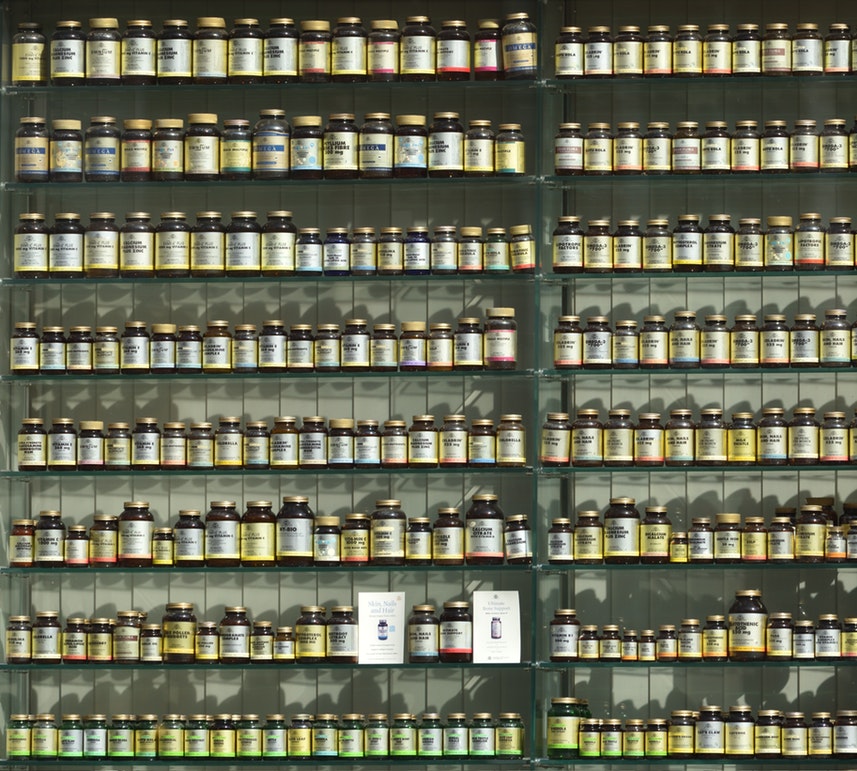CoQ10 to Boost Fertility
On a weekly basis, I am asked about which supplement I would recommend most to help increase fertility.. And while there is never just one supplement I recommend for 100% of my fertility clients, CoQ10 comes quite close to that.
CoQ10, or Coenzyme Q10, is a nutrient naturally made in the body and also found in some of the foods we eat. It is found in just about every cell in our body (including our eggs!) and plays an important role in cellular energy production.
It is also a potent antioxidant, protecting our body from free radicals and cellular aging.
CoQ10 & Fertility
While CoQ10 has many health benefits, it is the research on its benefit in protecting egg quality that first caught my attention many years ago.
CoQ10 is a vital part in creating energy for our cell’s energy powerhouses, the mitochondria. It is necessary to help the mitochondria produce usable energy for the cell in the form of ATP. ATP powers every metabolic process inside our bodies. Yes, that’s right, every metabolic process! Like eating, and breathing, and sleeping, and…. making babies.
ATP energy also powers ovulation. Did you know that the human egg contains more mitochondria than any other cell. Wow, pretty crazy, right? That’s because the process of ovulation expends SO much energy.
CoQ10 & Women Over 35
As we age, our mitochondrial function becomes impaired and the production of CoQ10 decreases. In fact, our mitochondrial energy peaks around age 20 and then begins to decline after that. Consequently, our eggs become less efficient at producing energy. Studies have shown actual structural damage begins to occur to the mitochondria of women over 40. In fact, this decline in mitochondrial integrity is thought to play a big role in the process of aging. This includes the aging of our reproductive organs.
The health of our mitochondria is a big deal if we are trying to fall pregnant! We need all of the cellular energy working at its optimal level for our egg quality to be at its best. In fact, as related in the book, It Starts With the Egg by Rebecca Fett, research has shown a link between the levels of cellular energy in the form of ATP and an ‘egg’s potential to mature properly and become a high-quality embryo.’
In 2013, a study on mice found that the level of CoQ10 in cells surrounding their eggs declined with age. With this data, the same researchers then went on to give CoQ10 to older female mice (comparable to a 40-year old woman in age) and observe the outcome on their fertility. An increase in energy production and number of follicles produced. They concluded that “CoQ10 may lead to improvement in egg and embryo quality and pregnancy outcomes.”
Human studies have also shown a positive impact on pregnancy outcome in women over 35 with the addition of mitochondrial nutrients, such as CoQ10. A small study performed in 2014 on women aged 35-43 undergoing IVF and taking CoQ10 supplementally showed promising results. This study aimed to look at the rates of chromosomally abnormal embryos in the CoQ10 group vs. a placebo group. The study found that the rate of chromosomal abnormalities in the CoQ10 group were less than the placebo group (46.5% vs. 62.8%). Clinical pregnancy rates were also higher in the CoQ10 group. Since chromosomal abnormalities are a common cause of miscarriage and failure for an embryo to implant, the use of CoQ10 to increase fertility is definitely very promising.
Our mitochondrial energy production is important for embryo development, the ability of the embryo to grow, and for the successful implantation of the embryo. To have healthy egg quality, we now know that mitochondrial health plays a huge role. Supplementing with CoQ10 can boost mitochondrial health and subsequently boost our fertility. So if you haven’t already given this supplement a try, it is definitely worth checking out!
Dosing & Form of CoQ10
Before we talk about how much CoQ10 is most beneficial to take, let’s look at the two main forms CoQ10 is sold in. These forms are called ubiquinone and ubiquinol. The standard form CoQ10 is sold as is called ubiquinone. However, ubiquinone needs to be converted in the body to ubiquinol to become an active antioxidant. Because the body does not absorb and convert this type of CoQ10 as readily, much of the ubiquinone is not able to be utilized as easily in the body. Because of this, the dosage recommendation of ubiquinone is usually higher than it’s broken down version, ubiquinol.
Alternatively, ubiquinonol is also sold as a type of CoQ10. It is a more absorbable version of the supplement, however it is costly for manufacturers to produce in a stable form. So, this supplement version will usually be more expensive, but you only need to take half the dose recommendation of ubiquinone.
For boosting egg quality, I recommend either 400-600mg/day in divided doses of ubiquinone or roughly half that amount for ubiquinol (200-300mg/day). For women who are over 35 trying to conceive, I recommend taking the higher dosage.
There are also some companies who use an enhanced absorption oil-based ubiquinone version that seems to have better absorption, so that a lower dosage of ubiquinone can be used.
Any form of CpQ10 is also best absorbed with food, so make sure to take it along with a meal.
Caution
Speak with your healthcare practitioner first before using if you are pregnant or breastfeeding. Studies have shown this supplement to have very low side effects, even with higher doses. A small number of people complain of mild gastrointestinal complaints with using CoQ10. Also, if you have Type 2 Diabetes, be under the guidance of your physician while you are taking this supplement as it can lower blood sugars.
~~~~~~
Are you a woman trying to get pregnant and looking for more personalized guidance and support into natural ways to increase your fertility? Book a FREE Fertility Audit call with a member of our team here.
References:
Santos TA, El Shourbagy A, St John JC. Mitochondrial content reflects oocyte variability and fertilization outcome. Fertil Steril. 2006;85:584-91.
Bentov Y, Esfandiari N, Burstein E, Casper RF. The use of mitochondrial nutrients to improve the outcome of infertility in older patients. Fertil Steril. 2010 Jan;93(1):272-5.
Bartmann AK, Romano GS, Ramos Eda S, Ferriani RA. Why do older women have poor implantation rates? A possible role of mitochondria. J Assist Reprod Genet. 2004;21:79-83.

